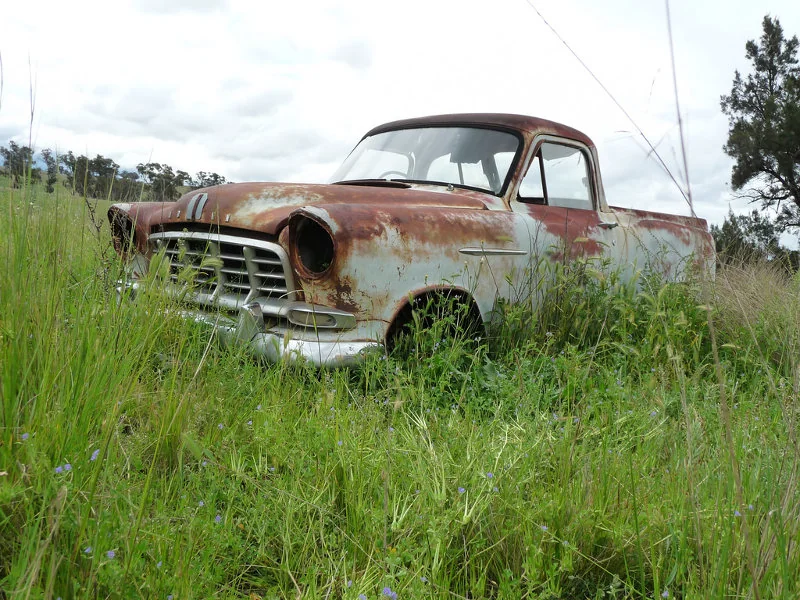Log Books and 1 Ton Utes
Log Books and 1-Tonne Utes: What You Need to Know
With the increasing popularity of 1-tonne utes, such as the Ford Ranger, Holden Colorado, and various 4WD dual-cab utes, these vehicles have become common for both business and personal use. As a result, a frequent question arises: Do I need to keep a log book to demonstrate personal use for my 1-tonne ute? The answer is somewhat nuanced, falling into both “No” and “Yes” categories depending on how the vehicle is used and defined under Australian tax law.
This post aims to clarify the Australian Taxation Office’s (ATO) stance on the matter, detailing the obligations business owners must consider if they use 1-tonne utes for both personal and business purposes.
Is the Ute Classified as a Car?
When it comes to claiming a deduction for vehicles, the ATO recognises two primary methods: the cents-per-kilometre method and the logbook method. However, these methods apply to what is legally defined as a “car.” So, is your 1-tonne ute considered a “car” for tax purposes? This is where things start to get interesting.
The ATO defines a car as a motor vehicle (excluding motorcycles and similar vehicles) designed to carry a load of less than one tonne and fewer than nine passengers. According to this definition, a 1-tonne ute does not meet the criteria of a “car.” Therefore, a log book is not strictly required under the definition of a car when calculating tax deductions. This is the “No” part of the answer to whether you need to keep a log book.
However, there’s an important caveat to keep in mind: you cannot claim vehicle expenses using the cents-per-kilometre method if your vehicle does not fall within the ATO’s definition of a car. This includes vehicles like 1-tonne utes, which exceed the weight limit. Consequently, if you haven’t maintained a log book and your ute is not classified as a car, you will not be able to use the simpler cents-per-kilometre method to claim deductions. You’ll need to rely on actual expenses and have documentation to support your business usage.
Checking the Manufacturer’s Specifications
One crucial aspect to consider when determining whether your ute qualifies as a 1-tonne vehicle under ATO guidelines is to verify the manufacturer’s specifications for the vehicle’s payload capacity. While many vehicles are marketed as “1-tonne utes,” the actual payload capacity can sometimes be less than 1 tonne. This can occur due to variations in models, accessories, and configurations that affect the total load the vehicle can carry. Before assuming your vehicle falls under the 1-tonne category and does not require a log book, it’s important to check the specifications provided by the manufacturer to ensure that the vehicle indeed has a payload capacity of at least 1 tonne. If the payload is less than 1 tonne, the vehicle may be classified as a car under tax law, and the usual rules for cars, including log book requirements, would apply. This small step could prevent potential issues during an ATO audit and help ensure you’re compliant with your vehicle deductions.
The Need for Apportionment: The “Yes” Part of the Answer
Now for the “Yes” side of things. While a 1-tonne ute may not be classified as a car for tax purposes, the ATO does have specific rules regarding expenses incurred for items that are used for both business and personal purposes. These rules dictate that you must apportion the expense accordingly. This means that for any vehicle, including a 1-tonne ute, which is used for both work and personal purposes, you need to proportionally allocate expenses between the two types of use.
To comply with this requirement, you will need to maintain some form of record to demonstrate how much of the vehicle’s use is for business purposes. This is where a log book, or as the ATO calls it, a “diary,” comes into play. The log book is essential for accurately documenting the business use percentage of the vehicle, which is then used to calculate the tax-deductible portion of vehicle expenses.
In simple terms, the expenses related to the ute, such as fuel, insurance, repairs, and maintenance, must be reduced by the proportion of personal use. Without a log book, you may not be able to substantiate the business use percentage, which could result in a lower deduction or, in some cases, a higher tax liability in the event of an audit.
What Does the ATO Require for a Valid Log Book?
For a log book to be considered valid by the ATO, it must cover a minimum continuous period of 12 weeks. During this period, you are required to record detailed information for every business-related trip. The key details that should be included are:
- The date of each trip.
- The start and finish times.
- Odometer readings at the start and end of the journey.
- The purpose of the trip, along with relevant details about the work-related tasks performed.
The information collected during these 12 weeks is then used to calculate the business use percentage of the vehicle, which is the proportion of the vehicle’s total use that is for business purposes. This percentage will then be applied to your vehicle-related expenses over the entire tax year to determine the deductible portion.
It’s important to note that once a valid log book has been established, it can be used for up to five years unless there is a significant change in how the vehicle is used (e.g., you start using the vehicle primarily for personal purposes). In such cases, a new logbook may need to be kept to reflect the changes in usage.
The Benefits of Keeping a Log Book for Your Ute
Although maintaining a log book might seem like a tedious task, it offers substantial benefits, particularly for owners of 1-tonne utes who use their vehicles for both work and personal purposes. By keeping accurate records, you will be able to maximise your tax deductions.
For example, vehicle-related expenses such as fuel, insurance premiums, registration, repairs, maintenance, and even depreciation (if applicable) can be claimed as tax deductions. However, only the work-related portion of these expenses can be claimed. The business use percentage, as determined by your log book, is what will be applied to calculate the deductible portion of these expenses.
In practice, keeping a log book can result in significant tax savings. Consider the following example: if you determine that 80% of your ute’s use is for work purposes, you will be able to claim 80% of your vehicle-related expenses as tax deductions. If you fail to keep a log book, you could be missing out on a higher deduction and might also face issues during a potential ATO audit, where substantiating business use could become a problem.
The Grey Area: When a Log Book May Not Be Necessary
Now, let’s explore a scenario that many business owners find themselves in. Say you are a tradesperson, such as a plumber or electrician, who drives a single-cab ute with a canopy on the back, fully stocked with tools and materials. In this case, the ute is clearly used for business purposes most of the time, and the personal use is minimal. If audited by the ATO, the chances of being asked to provide evidence of personal use for this type of vehicle are relatively low, as the ute’s primary function is evidently for work.
However, if you drive a dual-cab ute that has a more versatile setup—perhaps one that can easily be used for both business and personal activities—the situation changes. In this case, it’s far more likely that the ATO would question your personal use calculations during an audit. A dual-cab ute may be more commonly seen as a family vehicle outside work hours, so keeping a log book becomes more crucial in these situations to avoid complications with the ATO.
Final Thoughts
In conclusion, while a 1-tonne ute is not classified as a “car” under the ATO’s definition, this does not necessarily exempt you from maintaining records to support business use. If you are using the vehicle for both business and personal purposes, it is highly advisable to keep a logbook. This not only ensures that you are correctly apportioning your vehicle expenses but also helps you maximise your tax deductions.
For those using their 1-tonne ute almost exclusively for work, such as tradespeople with heavily equipped vehicles, the need to document personal use might be lower. However, for dual-cab ute owners or those with more significant personal use, maintaining a valid logbook is essential to substantiate your business expense claims and avoid potential scrutiny from the ATO.
By following the ATO’s guidelines and keeping thorough records, you can ensure that your vehicle-related deductions are maximised and that you remain compliant with the tax laws. While it may require some effort upfront, the long-term tax savings and peace of mind make it worthwhile.




I own and drive a private commodore ute to and from work carrying my work tools and gear. Can I claim?
Hi,
re: one tonne vehicle – do you have a list of models that come under that definition eg most duel cabs one tonne claimincludes passengers & sometimes even fuel capacity??
cheers
As 1 tonne Ute is excluded from the definition of a car, therefore the methods of claiming a tax deduction for a car do not apply to a Ute. But, the ATO still requires that if an expenses is not 100% for business, an apportionment of the expense is required. For a motor vehicle the ATO suggest keeping a log book for 12 weeks meets the requirements.